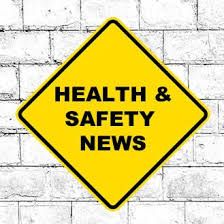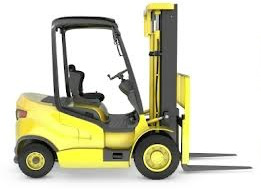TRAINING REGULATIONS AND INFORMATION FOR EMPLOYERS AND EMPLOYEES
Got a Question? Please call 01543 411305 or email info@cdr-training.co.uk
Managing lift trucks
- Lift trucks are particularly dangerous in the workplace.
- On average, lift trucks are involved in about a quarter of all workplace transport accidents.
- Accidents involving lift trucks are often due to poor supervision and a lack of training
Other legislation relevant to workplace transport and training
Training Regulations – Provision and Use of Work Equipment Regulations 1998 (PUWER)
Lifting Operations and Lifting Equipment Regulations 1998 (LOLER)

Frequently Asked Questions
Question: I want to pay for myself to do a course. Is this possible?
Answer: No – We’re sorry. CDR Training are an onsite training company who deliver training to business and trade customers only, we do not have any training centre facilities. Please contact RTITB on 01952 520200 (option2) for details of training centres in your local area
Question: Do I need to provide training for my staff on the mechanical handling equipment I have on site?
Answer: Yes. You as employer have a general duty under section 2 of the Health and Safety at Work etc Act 1974 to provide information, instruction, training and supervision to ensure the health and safety of your employees. Under the Provision and Use of Work Equipment Regulations 1998 employers are required to ‘ensure that all persons who use work equipment have received adequate training for purposes of health and safety, including training in the methods which may be adopted when using the work equipment, any risks which such use may entail and precautions to be taken’. The Management of Health and Safety at Work Regulations 1999 also place duties on employers to provide training. By not providing you with any training at all, your employer could be breaking the law.
There is a specific code of practice for Rider-operated lift trucks (eg counterbalance flt, reach truck etc) which you can download for free from the HSE here
Question: What determines the length of a workplace equipment training course?
Answer: This is determined by the subject areas stipulated by the training accreditation bodies (RTITB) and the PUWER regulations. Also, the candidate/trainer ratio and prior experience of the candidate will determine a course duration.
We will always recommend you as an employer follow the RTITB guidelines for your team, as they are in accordance with current health and safety legislation and therefore ensure compliance for basic operator training within the scope of the HSE’s Approved Code of Practice for Rider Operated Lift Trucks (L117). If you would like some more information on the ACOP (L117), please visit the HSE’s site: http://www.hse.gov.uk/workplacetransport/lift-trucks/lift-truck-training.htm
Question: Do those operators who use pallet trucks require training?
Answer: Yes, there’s some confusion on whether training is required for this type of equipment, however the basic principles and training requirements outlined in L117, our industry’s ACOP, extend to all pallet trucks, from simple manual pump trucks through to complex counterbalance stackers, and regulation 9 of the Provision and Use of Work Equipment Regulations 1998 (PUWER) makes it very clear that an employer must provide adequate training for all persons using work equipment (including pallet trucks) – which covers how it’s used, the risks involved, and precautions to be taken. (A laden powered pallet truck can often weigh more than double the weight of a car. Crushing accidents involving legs, feet and ankles are, sadly, commonplace).
Question: If an employee has a counterbalance flt certificate of training, does that mean they can drive other types of mechanical handling equipment?
Answer: No. The training which they received on the counterbalance flt is only valid for that type of machine. If you wish them to operate other equipment, then you will need to provide further training for that specific equipment. Each truck/equipment type requires its own certificate of training.
Question: As an employer, why should I provide refresher courses for my team?
Answer: It is recommended that you provide refresher courses for your team for a number of reasons. It means that their skills are kept up to date, it keeps away any bad habits that could arise increasing the safety of themselves and their colleagues. Many insurers require that regular refresher training is completed and whilst the HSE do not state that refresher courses have to be conducted after a set period, they will expect that you as an employer will do as much as is reasonably practicable to ensure the safety of your operators. Many employers arrange for refresher training and re-testing at somewhere between 3 and 5 year intervals. In the event of an accident the authorities would want to know when the operators involved were last trained and if that was a very long time ago, a court may deem that it has been too long and that refresher training should have been given. Here is what they recommend in their guidance:
The HSE have the following guidance with regards to refresher training: There is no specific time period after which you need to provide refresher training or formal assessment. However, you may decide that automatic refresher training or a retest after a set period (for example 3-5 years) is the best way to make sure employees remain competent. Where you adopt this approach, you will still need to monitor performance, in case operators need extra training before the set period ends.
The length of a refresher training course will be set by assessment of the operators to identify shortcomings and any unsafe habits which need correction. It is not, therefore, possible to advise on the length of refresher training. However, it is unlikely that refresher courses of less than one day will be effective.
Full details on lift truck training guidance from HSE can be found here
Question: How often should operators inspect their forklift?
Answer: Operators should inspect their forklifts at the start of every working day or the start of each shift in multi-shift applications. Operators trained by CDR will undergo instruction and assessment on this essential part of a trucks maintenance.
Question: What is the minimum age for operating a forklift?
Answer: Lift-truck operators should be over the minimum school leaving age (MSLA), except in ports where they must be at least 18 years old.
Question: Do my forklift operators have to wear a seat belt on a forklift?
Answer: Yes, where there is a seat belt on a truck, it must be used.
Did you know that 4 forklift operators died in 2018 as a result of not wearing a seat belt? Employers have a responsibility for ensuring that operator restraints are being used, including seat belts and door bars. From 2025, lift trucks won’t start until the seat belt is properly engaged, but employers should take action now. Site specific risk assessments should also be taken, and operators should be clearly instructed so that they know which trucks seat belts should be worn on.
Question: My employees will only be using the machine on a part time basis. Do they still require training?
Answer: Yes, all users will need full training in order to operate a machine. It is a legal requirement that they receive proper training regardless of the amount of time they will use the machine.
Question: Once operators have completed their training, will they receive a licence?
Answer: There is no such thing as a licence to operate a forklift. Many people refer to their certificate of basic training as a “licence” but this is not the case. The certificate that is issued to successful candidates after a training course is properly known as a “Certificate of Training” and is usually accepted as proof that the holder has attended a training course and passed the forklift test. Successful candidates trained by CDR will receive a certificate of training as well as an instructor’s report sheet detailing their course results and also any recommendations made by the trainer, along with a training record confirmation which details the subjects covered on the training course.
Question: Is it necessary for me to keep records for my qualified and certificated operators?
Answer: Yes, CDR Training will provide each candidate they train with a certificate of training, instructors report sheet detailing their course results and also any recommendations made by the trainer, along with a training record confirmation which details the subjects covered on the training course. We will also contact you when we would recommend refresher training.
Question: Is CDR Training Ltd accredited?
Answer: Yes, we are accredited with RTITB and undergo annual audits to ensure compliance with the standards of their accreditation. RTITB are members of the ABA (Association of Accrediting Bodies)
Trainee Testimonials
We have an excellent team of trainers here at CDR. Please click here to see what recent trainees have to say about their experience with CDR.
Contact Us
CDR Training Ltd is based in Lichfield, Staffordshire meaning we are ideally placed to deliver training on customer sites across the East & West Midlands, Staffordshire, Derbyshire, Shropshire, Nottinghamshire, Leicestershire, Warwickshire, Worcestershire.
For more information, please email info@cdr-training.co.uk, give us a call on 01543 411305 or complete our Training Course Enquiry Form.
CDR Training LTD - Company No: 9278274 / VAT Reg: 876 0138 16.



